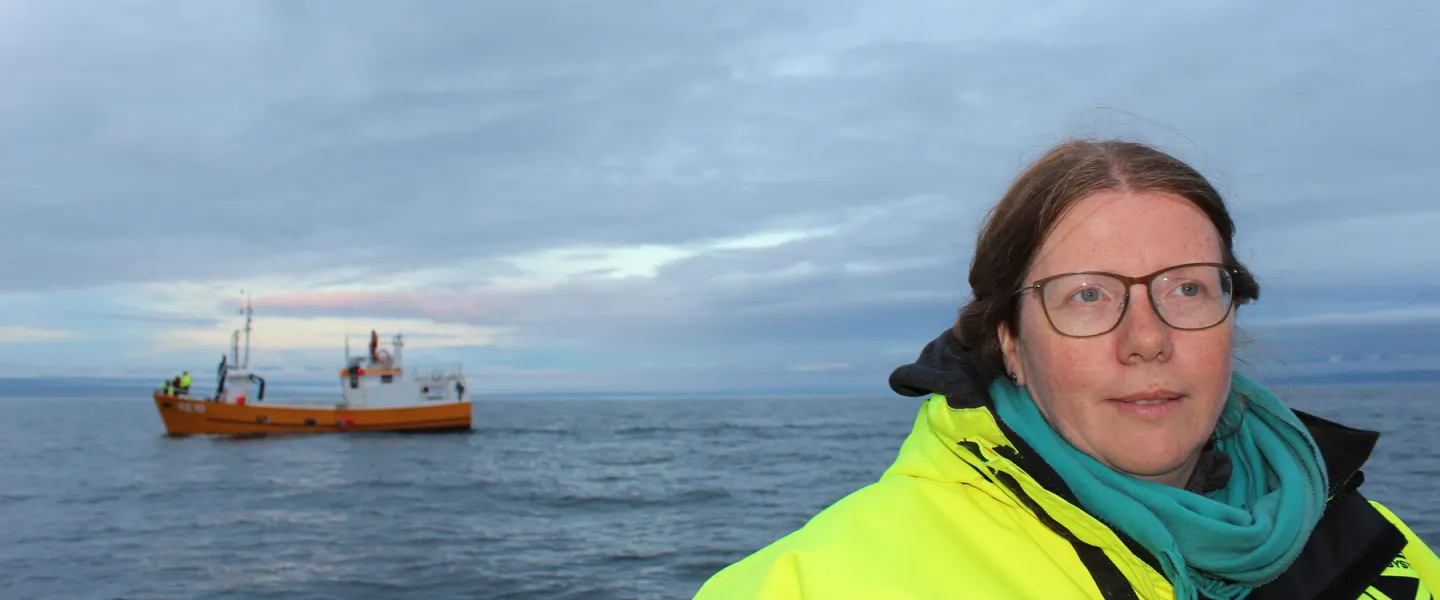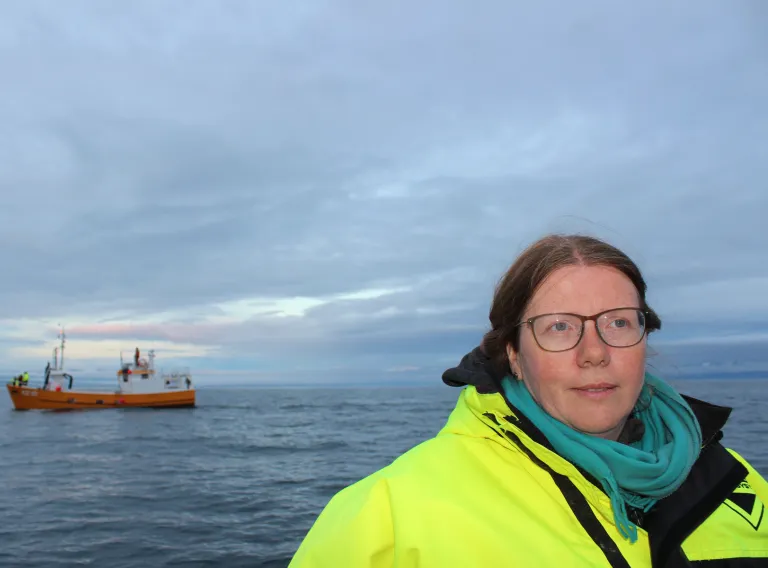
For just over half a century, seismic airguns have been the most commonly used equipment for locating oil and gas under the ocean floor. Seismic airguns release fast-moving and highly pressurised air bubbles under the sea. The air bubbles expand and contract in the ocean, forming sound waves that bounce off the seabed and provide data that can be used to create images of areas that would potentially be worth exploring.
The loud sounds may have a negative impact on the marine environment and ecosystems, not least on marine mammals such as whales. New instruments have been attracting attention that are likely to have a smaller impact on the biosphere than seismic airguns and are more environmentally friendly. Among these new solutions is the so-called marine vibrator, which has been the subject of a study over the past summers at the University of Iceland Research Centre in Húsavík.
"We want to look at whether this new equipment affects whales or changes their behaviour. Since the marine vibrator produces a quieter sound, it would be better if the oil and gas exploration industry could use this instead of airguns." So says Marianne Rasmussen, director of the University of Iceland Research Centre in Húsavík and prominent figure in Icelandic whale research.



